I called it The Work Caravan to Asia, but by now it was simply a routine drive from our apartment to Özyeğin University and then on to 3M. One car, Ümit driving, Sankar and I sitting together in the back seat. We did cross the Bosphorus, however, Turkey’s watery intercontinental border, and I loved peering down at the elegant Ortaköy mosque on the European shore.
Traffic wasn’t usually a problem until we were on the bridge, but one December morning, we came to a complete stop just a few blocks from our apartment.
“What’s going on?” Sankar asked, looking up from his text messages.
Up ahead, we could see a cherry picker truck. It seemed to be blocking a roundabout.. As we inched closer we could see a dense-looking artificial Christmas tree standing sentinel in the middle of the grassy circle. Perhaps fifteen feet in height, it was made of some kind of tufted green substance and blanketed with tiny white twinkling lights. A bright red, eight-pointed star already sat on top.
The tree had only about a third of its ornaments; this project could take awhile. What to do? Noticing a break in the oncoming lane, Ümit backed up a quarter car length. Then, with a snort of exasperation, he swiveled the steering wheel, turned sharply, and headed toward a different O-1 entrance ramp.
As we got into a long line of cars on the First Bridge, I pondered a Christian holiday causing Muslim commuters to be late to work. I also thought about my job. My one-year contract would end in late January. I was a better teacher now, at least according to survey results I had just received. My students had given me above average ratings, and several had even commented, “She is a good teacher.” I was enjoying my coworkers. Six of us teachers who shared an office had become friends, telling jokes, passing snacks, and occasionally going out for coffee after classes. I was pleased to be included in this group. Everyone else was under thirty-five.
When ÖzU first offered me a teaching contract, I was so grateful that I thought, even if Sankar was transferred in the middle of a school year, I would stay and soldier on, finishing out the year, perhaps living alone in a small apartment on the Asian side. I thought the job would be just the thing for me: absorbing and fulfilling. And it often was. But it was also becoming too much. I was starting to dislike standing in the classroom for four hours each day and spending another three or four hours every day preparing. I was on a treadmill and I wanted off.
But the idea of not re-upping when my contract ended put me in a quandary. First, I had made a major fuss about getting work here in Turkey, and I had received considerable help getting a job. Second, work had carried me away from the boredom and frustration so corrosive to expatriate marriages. I actually believed it had rescued my entire Turkey experience. It had changed my focus from myself to my students. I had allowed me to have a professional experience just like Sankar. It had even boosted my self-worth, fragile after years at home raising kids.
Teaching here had also led to a significant personal discovery. Despite my struggles with unruly students, I loved the interplay of culture and language that teaching English as a Second Language involved. I wanted to pursue ESL teaching back in the States, and I planned take a certificate course when I returned, although I had no idea what my marketability would be at age 57. Now, with a year of experience under my belt, I asked myself: If I taught at ÖzU for another six months or even a year, would that increase my chances of getting a teaching job in Minnesota? I wasn’t sure it would.
I did realize that, if I wasn’t employed here in Turkey, I would certainly experience some unproductive days. But I didn’t think resentment would make a comeback. The decision not to work would be mine; there would be nobody else to blame for it. Still, it was an open question, sort of like, “If I stop taking the medication, will my headaches return?”
My teaching colleagues worked because they needed income. I was different. I didn’t need the money. My $28,000 annual salary wasn’t necessary to keep Sankar and me afloat. So increasingly, a Grinch-like voice in my head whispered: “Why are you giving up five full days each week? Why are you giving up eleven months each year?”
I had thought that, by moving to Turkey, I’d be saying goodbye to Christmas. There hadn’t been any signs of the Nativity in Yemen back in 1979 and ’80, and I didn’t expect any in Istanbul, either. While packing to move, I had, however, tucked a few Christmas ornaments into my suitcase. I thought maybe I’d be able to find the top of an evergreen tree or some potted plant to decorate when the time came. Last year, I had taken off for the States in mid-December to celebrate the holiday back home. This year, Sankar and I would be staying in Turkey. Angela and Greg would join us.
At Istinye Park mall, located in an upscale neighborhood north of us, a huge cone-shaped Christmas “tree,” laden with gold stars and red garlands, now stood on the main floor. Hundreds upon hundreds of artificial red poinsettia blooms decorated the edges of the mall’s many balconies and arches, with strands of white lights hanging from them. Thousands of Westerners lived in Istanbul and I knew this was a commercial effort, but I felt sentimental during the Christmas season, and a dose of familiarity helped prevent homesickness.
Rows of blue and white lights now twinkled high above historic Istiklal Avenue. When I entered a men’s shop to look for a gift for Sankar, the middle-aged woman waiting on me confided, “Ever since I was a child, I loved Christmas!” At grocery stores in Kuruçesme and Levent, I stared in amazement at entire aisles devoted entirely to Santa hats, wrapping paper and ornaments.
It was a delight to observe creative and sometimes quirky Turkish efforts to commemorate the holiday. One shop window displayed a Christmas tree made of pale wooden dowels, with red and white wooden balls on their ends. A shoe store had a tree made entirely of overlapping red leather slippers. Santa Clauses of all sizes, made of ceramic, wood and felt, were everywhere. Several malls even had life-size mechanical versions that moved their lips and tilted their shoulders. Beside them, shoppers—mostly adults and mostly Turks—posed for pictures.
Perhaps all of this shouldn’t have surprised me. Turkey had been Christian for a millennium and the original St. Nicholas was the fourth-century bishop of Myra, a town in southern Turkey. And Turkey was secure in its identity, unlike neighboring countries bitter about Western colonization.
Christmas tunes burst forth in shopping centers and at Atatürk International Airport. Most were secular, but some lyrics were apparently not well understood. Over and over, we heard Loreena McKennitt’s devout “The Seven Rejoices of Mary,” with its verse about “the Holy Baby.”
We needed to find a Christmas tree. From what I understood, the city of Istanbul prohibited the cutting down of any kind of tree. And, although artificial trees were available, I wanted something real. So Sankar and Ümit, two good sports, neither of whom grew up observing Christmas, went to a nearby nursery and bought a four-foot-tall potted pine. It took some effort for them to lug it up to our apartment. When it reached there, I decided it needed as much light as possible, so I placed it out on our balcony. After Christmas, we would give it to Ümit’s mother to plant in her garden.
Earnest about helping me observe a major religious holiday, Ümit accompanied me to the mall to buy decorations. He quickly found a string of hot pink lights and held them up, declaring, “These are the best ones.” I ended up buying them along with a matching set of ornaments.
The drive to the mall took Ümit and me through a tunnel. Now, the inside of that tunnel glowed with tiny white lights. “What are these for?” I asked Ümit.
“New Year’s,” he replied.
The New Year was already looking busy. It was possible we’d be transferred home in June. And in the early months, we had three groups of visitors arriving. Each would stay for over a week, a nice diversion from work. I was already feeling distracted, however, by something I wasn’t able to participate in. Waverley had gathered a group of expatriates—mothers from the international school—who went out each week to explore Old Istanbul. They called themselves The Monday Ladies.
A year before I would probably have dismissed a group like this as a bunch of bored wives trying to kill time. But I now wished I could go with them. I longed to wander the narrow passages of the Bazaar Quarter, poking into obscure mosques and defunct Byzantine churches. I longed to have the time to soak up the atmosphere of Constantinople.
With this allure and a feeling that my time in Turkey was growing short, I broached the topic of leaving my job with Sankar. He was surprised. The job meant a lot to me. He understood my desire to delve into Istanbul, but was wary of old patterns reemerging. “Don’t assume we’re leaving here in June,” he warned. “You might be sitting around here all year.”
He was right. But now that I’d opened the door to leaving, little things at work began to annoy me. Management tended toward severity. After I received eighteen positive and two negative ratings from my students, my boss said she wanted my reaction in writing. I pretended I didn’t understand, murmuring that I was flattered my students thought so highly of me, but I knew which ratings I was being asked to address.
And then my Turkish colleagues. They sometimes acted as if we foreigners were just a necessary evil. Although formal meetings were conducted in English, occasional department discussions in Turkish excluded us. And how was it that they almost never asked us native speakers for English help? (A rare and admirable exception was the deputy director, who stopped me in the corridor one day with, “Sue, is it better to say ‘I am in the Internet’ or ‘I am on the Internet?’”)
There was an administrative assistant to whom we teachers had to go for office supplies, copier assistance, and other support. Friendly to the Turkish teachers, this person managed to “help” us foreigners as little and as grudgingly as possible.
“It’s because we’re needy,” Caitlin explained. Yes, we foreigners did have extra needs. We were clueless about department minutiae and we periodically needed help with paperwork for our work permits. It was very rare to meet unfriendly Turks, and now came the enticement: if I quit, I won’t have to deal with this anymore.
And finally, there was the upcoming Christmas season during which, regardless of whether or not I signed a contract for 2012, I’d have to work straight through. While Angela and Greg were here, I wouldn’t have much time to spend with them, nor would I have much time to shop, bake or decorate. I did understand that Big Nergis couldn’t give us five or six Christian teachers days off without looking unfair. We had taken advantage of all of Turkey’s Muslim and secular holidays. But still, I found the situation irritating.
Caitlin also felt squeezed by the holidays, and she and I discussed this dilemma. Finally, we decided to ask Big Nergis if we could work on Friday morning before the Sunday holiday (thank goodness we didn’t have to work on Christmas Day itself) instead of our usual Friday afternoon. That would extend our holiday weekend a half day. We’d have to make special arrangement, however, as classrooms would be full of regularly-scheduled students. After Big Nergis agreed, we decided to combine our two classes and meet in the auditorium.
“I know—we’ll show a movie! The Grinch who Stole Christmas,” Caitlin suggested.
“Huh? A Christmas movie?”
“We did it at Bilkent and it went over just fine.”
She was right.
As the holiday approached, Neslihan, a colleague who occasionally asked me for help with her American Studies doctorate papers, presented me with a pretty music box that played “Deck the Halls.” The elegant Çirağan hotel, formerly an Ottoman palace, hosted Christmas carolers from the British School, including one of Waverley’s daughters. Turks sitting in the lobby applauded. Adjacent to the carolers stood a gingerbread house of such dimensions that it looked like the Houses of Parliament. Next to it, customers could buy little Christmas trees made of white chocolate and adorned with the words, “Mary Christmas.”
Angela and Greg arrived the week before Christmas, and our gifts for each other began forming a line on the living room ledge overlooking the Bosphorus. They admired Istanbul’s decorations and enjoyed the balmy weather that allowed us to stroll comfortably outside.
We ate a huge Turkish meal that week at Gokhan and Burcu’s apartment alongside their small artificial Christmas tree. On Christmas Eve we went to St. Anthony of Padua Catholic Church on Istiklal for late afternoon meditation. Christmas Day dawned sunny and 55 degrees and, after gift-giving, Angela and I walked with some sense of irony to the seaside Rumeli Hisar fortress that Mehmet the Conqueror had put up in four months in 1453 prior to conquering Constantinople. We climbed its ramparts and composed photos that included the European fort’s stone crenelations, ships gliding back and forth on the Bosphorus, and the distant hills of Asia. Two continents in a single frame. I would never forget this unusual family Christmas.
Back at work on the 26th, I was still hearing “Merry Christmas” from my Turkish colleagues.
“It’s over,” I told them, “but thank you.” The wishes, oddly, kept coming. Was it because Turkey’s religious holidays generally involved multiple days? On December 29, several large boxes appeared near the office photocopier. The next day, an artificial tree had been assembled next to it, and the doorways in our suite of offices were adorned with shiny red garlands. Two cute little Santa dolls were rappeling up a ladder made of string on one doorframe. They had almost made it to the top.
I stood and stared. How had my colleagues gotten the date of our holiday so wrong? How had they not known?
But it turned out I was wrong. On New Year’s Eve, Noel Baba (Father Noel), a secular character long promoted to commemorate St. Nicholas, makes his rounds (I am not sure if chimneys or sleighs are involved), leaving gifts for Turkish adults and children. Preparations were right on time.
I would miss my friendly colleagues and our camaraderie, borne out of a kind of shared suffering. I knew that once I left ÖzU, I wouldn’t see them much again, and that pained me. And I felt guilty choosing leisure when they had to work. My array of economic choices was surely undeserved. But then I reminded myself that I hadn’t missed one day of work, not even one hour of teaching during the entire year. I had tried my hardest every class period, and although I hadn’t been a very effective teacher at first, I had listened to advice and I had improved.
I had earned my $28,000.
Finally, one morning as I struggled with an inattentive class, my decision crystallized. Teaching is above all a dance between teacher and students, and students can make or break the experience. Unfortunately mine were disrespectful, inconsiderate, and even disruptive. I would never quite understand why this was the case in such an otherwise courteous country, but I guessed their family wealth made them feel entitled. I no longer wanted to teach spoiled kids.
Of course some of my students came from humble families and some of them were appreciative. But the image of Deniz strutting across the classroom in thigh-high suede boots trumped that of shy, simply dressed Yildiz. And the sight of Nilgun and Hamza roaring down Kuşbakışı Caddesi in a late-model SUV overpowered that of Recep trudging out of class with a worn backpack slung over his shoulders. I was painting in broad strokes, kind of like the hot pink holiday decorations around me. Kind of like a Grinch.
“And then! Oh, the noise! Oh, the Noise! Noise! Noise! Noise!
That’s one thing SHE hated! The NOISE! NOISE! NOISE! NOISE!”
Yes! That was the truest true of all. Above all, it was the noise that was driving me away from Ozyegin. The noise from my students, who talked while I talked, and whom I had never been able to quiet nor tame.
And so, feeling as sour as the infamous Seuss villain—and just as eager to force a change—I pressed the GONDER button on a email to big Nergis late one December evening, informing her I wouldn’t be returning for a second year. But first, I called Sankar’s secretary, Didem, who had been of such great help ferreting out job contacts, writing letters, and setting up interviews for me. I wasn’t very eloquent in giving her my reasons, but I did thank her sincerely for her help. And I told her how deeply I had appreciated having the job. I meant it.
As I packed ornaments and bows away, I felt lighthearted. In less than a month I’d be out of the classroom, the Work Caravan to Asia disbanded. Then I could begin the rest of my life in Istanbul.

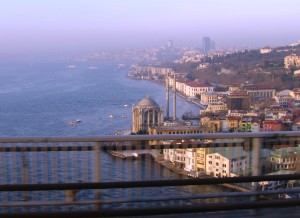
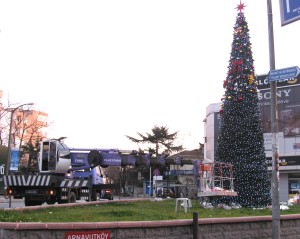


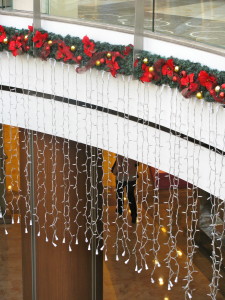

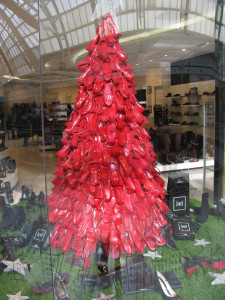


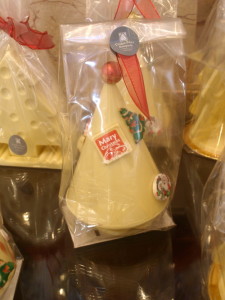
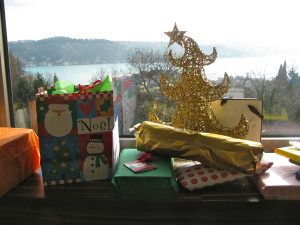
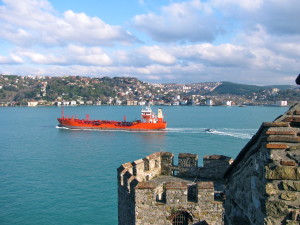
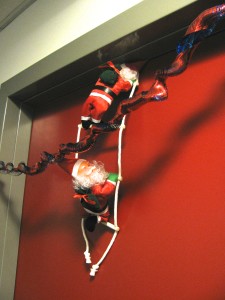


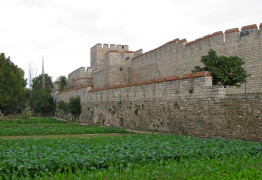

http://khcnpy.gov.vn/avilh/hwFIzn/ ボールペンヴィトン キャリーケース
, 新作メンズ,ルイヴィトンブーツ
http://yasarlarkereste.com/ckfinder/wrgk/hcfayn.htm カタログヴィトン
がま口, コンサート,ヴィトン質屋